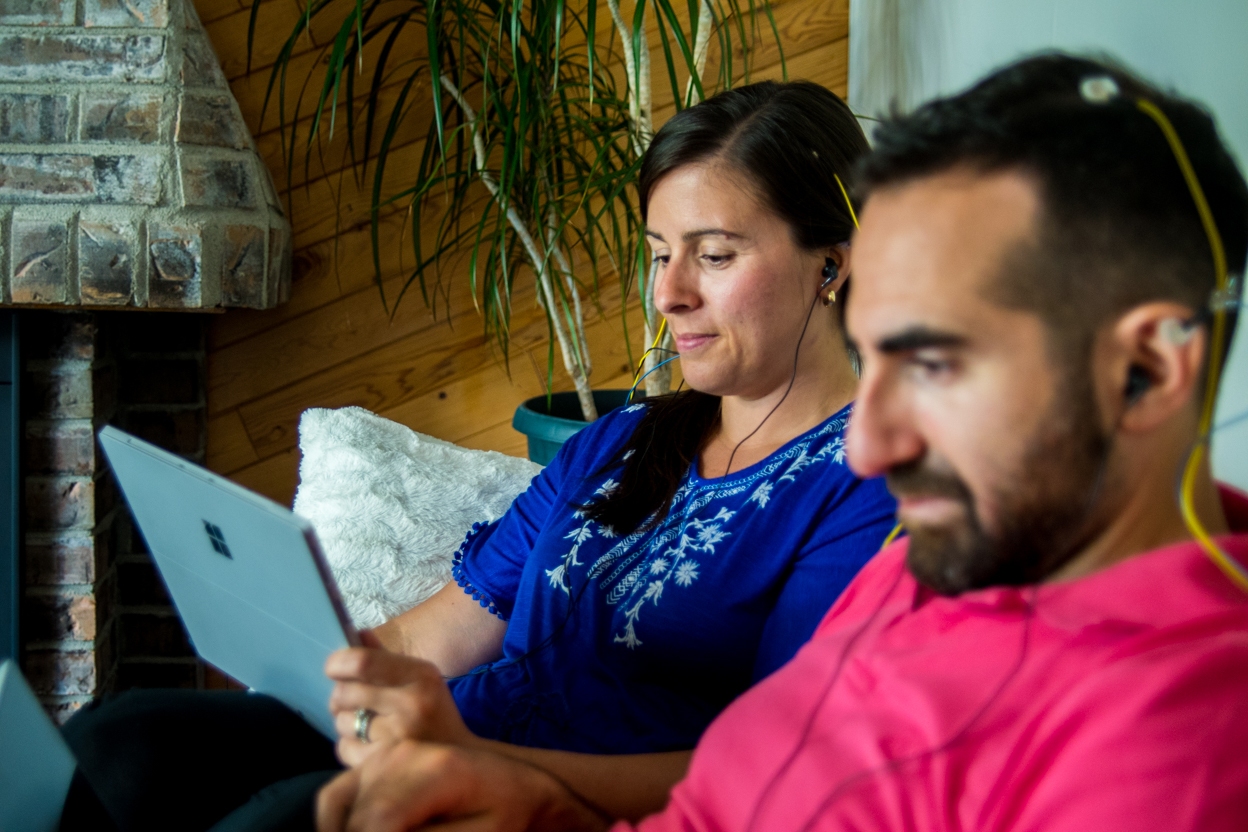How Do I Treat Insomnia?

A Comprehensive Guide to Sleep Recovery
The desperate search for sleep brings millions to ask this crucial question yearly. While advice abounds, finding effective insomnia treatment requires understanding the complexity of sleep disorders and the range of available solutions. Let’s explore evidence-based approaches to recovering restful sleep.
Understanding Your Insomnia
Before treatment, identifying your specific type of insomnia is crucial:
Sleep Onset Issues
- Difficulty falling asleep initially
- Racing thoughts at bedtime
- Physical restlessness
- Anxiety about sleep
- Extended wake times
Sleep Maintenance Problems
- Frequent night wakings
- Difficulty returning to sleep
- Early morning awakening
- Fragmented sleep patterns
- Unrefreshing sleep
Contributing Factors
- Stress and anxiety
- Medical conditions
- Medications
- Environmental disruptions
- Lifestyle habits
- Circadian rhythm disorders
Contemporary Treatment Approaches
Modern insomnia treatment encompasses several strategies:
Medical Interventions
- Prescription sleep medications
- Over-the-counter aids
- Melatonin supplements
- Anti-anxiety medications
- Antidepressants
Limitations of Medication
- Dependency risks
- Side effects
- Tolerance development
- Rebound insomnia
- Cognitive impairment
- Long-term health concerns
Behavioral Therapies
- Cognitive Behavioral Therapy (CBT-I)
- Sleep restriction therapy
- Stimulus control
- Relaxation techniques
- Sleep hygiene education
Natural and Alternative Solutions
Evidence-based natural approaches include:
Lifestyle Modifications
- Regular exercise timing
- Dietary adjustments
- Light exposure management
- Stress reduction practices
- Environmental optimization
Herbal Remedies
- Valerian root
- Chamomile
- Passionflower
- Lavender
- Ashwagandha
Sleep Recovery’s Innovative Approach
Sleep Recovery offers a unique solution through amplitude-based neurofeedback:
Program Benefits
- No medications are necessary
- Personalized treatment protocols
- Real-time brain wave monitoring
- Sustainable results
- Online personal sleep coaching
Treatment Process
- Detailed assessment to ensure good candidacy
- Custom protocol development
- Regular progress assessment
- Protocol refinement
- Long-term stability
The 15-session program provides consistent results, with most clients experiencing significant improvement within four sessions.
Success Stories
Edith’s Experience
Jennifer, 42, tried numerous approaches before finding success. “I’d been through sleeping pills, meditation apps, and countless supplements,” she shares. “Nothing provided lasting relief until I discovered neurofeedback at Sleep Recovery.”
After three weeks in the program, Jennifer noticed substantial changes. “For the first time in years, I started falling asleep naturally. The “worry about the future” thoughts quieted, and I stayed asleep through the night.”
Peter’s Recovery Journey
Michael, 55, struggled with chronic insomnia for a decade. “The worst part was feeling like I’d tried everything,” he recalls. “Sleep medications left me groggy, and cognitive behavioral therapy was hard to maintain with my schedule.”
Sleep Recovery’s treatment program provided the breakthrough he needed. “The brainwave training sessions were simple but effective. After 11 sessions, my sleep quality improved more than with years of other treatments.”
A Step-by-Step Treatment Guide
For optimal results, follow this comprehensive approach:
1. Assessment Phase
- Professional evaluation
- Sleep diary maintenance
- Trigger identification
- Medical screening
- Goal setting
2. Treatment Implementation
- Begin neurofeedback sessions
- Establish a consistent sleep schedule
- Modify environmental factors
- Address lifestyle factors
- Monitor progress
3. Maintenance Strategy
- Regular progress reviews
- Protocol adjustments
- Lifestyle refinements
- Stress management
- Support system development
What to Avoid
Common mistakes that hinder insomnia treatment:
1. Counterproductive Behaviors
- Excessive time in bed
- Irregular sleep schedules
- Daytime napping
- Abnormal stressors
- Heavy evening meals
2. Harmful Substances
- Caffeine after midday
- Alcohol near bedtime
- Nicotine
- Heavy meals late at night
- Excessive liquids before bed
When to Seek Professional Help
Consider professional intervention when experiencing:
- Persistent sleep difficulties
- Daytime function impairment
- Mood changes
- Physical symptoms
- Safety concerns
- Quality of life impact
Frequently Asked Questions
Q: How long does it take to see results from treatment? A: While individual responses vary, most people begin experiencing improvements within 2-4 weeks of consistent treatment, particularly with approaches like neurofeedback.
Q: Is medication necessary for treating insomnia? A: No, many practical non-medication approaches exist, including neurofeedback, which addresses the root causes of sleep disruption.
Q: Can insomnia be cured permanently? A: While a complete “cure” may not be correct, many people improve long-term sleep through proper treatment and maintenance strategies.
Q: How does neurofeedback compare to readily available treatments? A: Most medicalized treatments only address the neurochemical aspects of insomnia (and corresponding anxiety).
Q: What role does diet play in insomnia treatment? A: Diet significantly impacts sleep quality. Timing of meals, specific food choices, and nutrient balance all contribute to better sleep.
Q: How important is sleep hygiene in treatment? A: Sleep hygiene has been touted as a first-line approach to insomnia treatment. However, new data is challenging this narrative.
Conclusion:
Although there are many sleep treatments, few deliver on achieving natural, healthy sleep for the long term. Taking a fresh look at modalities like sleep recovery and other programs could be the answer for many.
References:
-
Insomnia and its treatments—trend analysis and publication profile of randomized clinical trials. https://www.nature.com/articles/s44323-024-00014-0
- Advances in the Treatment of Chronic Insomnia: A Narrative Review of New Nonpharmacologic and Pharmacologic Therapies. https://pmc.ncbi.nlm.nih.gov/articles/PMC8354724/
-
The European Insomnia Guideline: An update on the diagnosis and treatment of insomnia. https://onlinelibrary.wiley.com/doi/10.1111/jsr.14035
-
Management of Insomnia Disorder in Adults: Current State of the Evidence. https://effectivehealthcare.ahrq.gov/products/insomnia/clinician
